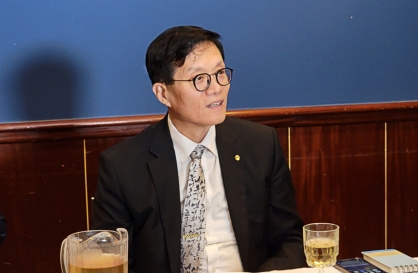Gender facts in fiction
Balinese writer Oka Rusmini sheds light on local women dealing with gender discrimination By Ina Parlina, Asia News Network
By Yoon Min-sikPublished : Nov. 26, 2012 - 20:04
For restless Balinese writer Oka Rusmini, the fight for feminism is far from over.
“Many people think that in Indonesia, feminism has succeeded in the form of texts and theories,” Rusmini says. “But for as long as some women are still being discriminated against by their societies, cultures and religions, gender equality has not been established yet ― not here, not anywhere.”
And that is the reason she writes.
Rusmini has published several short stories, poetry and novels that mostly centre on the unjust lives of Balinese women who deal with gender discrimination.
“My books are for women. It’s too far-fetched to want men to understand us and embrace feminism. It’s the women who need to understand how to deal with their bodies, their religion and their society,” she says.
“Many people think that in Indonesia, feminism has succeeded in the form of texts and theories,” Rusmini says. “But for as long as some women are still being discriminated against by their societies, cultures and religions, gender equality has not been established yet ― not here, not anywhere.”
And that is the reason she writes.
Rusmini has published several short stories, poetry and novels that mostly centre on the unjust lives of Balinese women who deal with gender discrimination.
“My books are for women. It’s too far-fetched to want men to understand us and embrace feminism. It’s the women who need to understand how to deal with their bodies, their religion and their society,” she says.

Rusmini’s publications include the poetry collections “Monolog Pohon” (1997), “Patiwangi” (2003), “Warna Kita” (2007) and “Pandora” (2008); the novels “Tarian Bumi” (2000), “Kenanga” (2003) and “Tempurung” (2010); and the short-story sets “Sagra” (2001) and “Akar Pule” (2012). “Tarian Bumi” has been translated into both German and English.
Born in Jakarta in 1967, she spent her youth in Bali, in a rigid patriarchal community. She says she always “faced a harsh socio-cultural reality as a Balinese woman.”
“My books are my documentation. I witnessed so many things happen to women. They are forced to marry for the sake of Balinese custom. Religion is also very discriminatory.”
Her writing captures the simplest things that happened with women at the time, she adds. “For example, names. Many modern Balinese women do not bear Balinese name anymore.”
Rusmini says she has never felt afraid to write about the rigid culture, caste system and religion. “People, not only Balinese, can shun me. I tell them this is fiction, but it echoes the facts in our society,” she laughs. “The big picture covers the common things that can happen to women in many societies, but the frame is the Balinese community.”
Despite being a mother and an editor of a leading newspaper in Bali, Rusmini often feels lonely, but says writing novels makes her forget the isolation. “I have no friends to talk to, so I switch my mind on and create characters. It’s like having a dialogue with all these characters inside my head. And voila ―there’s the short story or novel!”
Rusmini started writing short stories and poems while in elementary school but didn’t publish anything until her second year of junior high.
This year, Indonesia chose Rusmini’s novel “Tempurung” to receive the SEA Write Award. Early this month she was among the eight Southeast Asian writers accepting the award in Bangkok.
“Tempurung” portrays a woman who lives in an absurd marriage. Rusmini says the main character didn’t want to get married though she did want children.
The novel actually originated as a collection of articles she’d published in newspapers. “People won’t believe it because I’m good at packing them into a novel!”
She plans to continue advocating for gender equality and documenting her culture. “I’m still working on my next book. Other than that, I hope this award can promote women’s literature. My goal is to have my novels available in regular schools in Indonesia as literature textbooks.”
“Novels are important tools for educating children about their culture and its gender construction,” she says.
However, the mother of one can’t imagine herself being a full-time writer. “It would haunt me with more deadlines and goals. I don’t want to be a commercial, full-time writer. I like just being a mother and a journalist who sometimes writes.”
By Ina Parlina
(Asia News Network)




![[AtoZ into Korean mind] Humor in Korea: Navigating the line between what's funny and not](http://res.heraldm.com/phpwas/restmb_idxmake.php?idx=644&simg=/content/image/2024/04/22/20240422050642_0.jpg&u=)





![[Herald Interview] Why Toss invited hackers to penetrate its system](http://res.heraldm.com/phpwas/restmb_idxmake.php?idx=644&simg=/content/image/2024/04/22/20240422050569_0.jpg&u=20240422150649)







![[Herald Review] Xdinary Heroes kicks off five-month-long project with solo concert, teases new album](http://res.heraldm.com/phpwas/restmb_idxmake.php?idx=652&simg=/content/image/2024/04/22/20240422050539_0.jpg&u=20240422152154)
![[Today’s K-pop] Illit logs 100m Spotify streams with debut song](http://res.heraldm.com/phpwas/restmb_idxmake.php?idx=642&simg=/content/image/2024/04/22/20240422050650_0.jpg&u=)